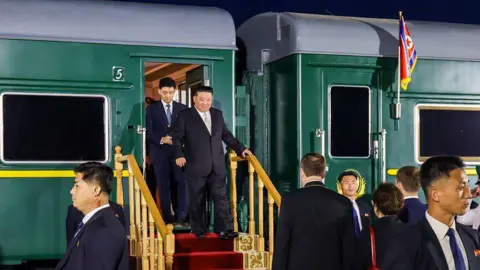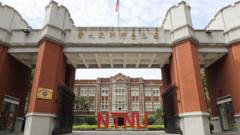The unprecedented recall vote in Taiwan, dubbed the "Great Recall," took place amidst concerns regarding the Kuomintang lawmakers' closeness to China. Thousands of citizens participated in the vote, focused on whether or not to oust these lawmakers, yet the initial results show all targeted legislators retaining their positions. This outcome is significant, as it maintains the current opposition majority against the Democratic Progressive Party (DPP), which has faced parliamentary challenges in recent months.
The controversy began following a January elections outcome where a DPP president was elected, but opposition parties secured dominance in the Legislative Yuan. The Kuomintang collaborated with smaller parties to obstruct DPP policies, provoking public outrage and protests known as the Bluebird movement. Supporters of this movement condemned potential Chinese influence within Taiwan's legislature, particularly after a visit from Kuomintang lawmakers to China, which fueled suspicions of a hidden agenda favoring Beijing.
While voter participation was crucial for the recall's success, efforts from civic groups and counter-rallies by the Kuomintang defined the campaign landscape. Both sides vehemently defended their positions, raising accusations against one another. The DPP's eventual support for the recall initiative aimed to solidify its connection with the electorate, marking a strategic shift in their approach. Meanwhile, Beijing has criticized the DPP government, labeling it as suppressive and undermining democratic values. The next stage of this political saga will unfold with further recall elections scheduled for August—keeping an anxious spotlight on Taiwan's democratic processes and future.
The controversy began following a January elections outcome where a DPP president was elected, but opposition parties secured dominance in the Legislative Yuan. The Kuomintang collaborated with smaller parties to obstruct DPP policies, provoking public outrage and protests known as the Bluebird movement. Supporters of this movement condemned potential Chinese influence within Taiwan's legislature, particularly after a visit from Kuomintang lawmakers to China, which fueled suspicions of a hidden agenda favoring Beijing.
While voter participation was crucial for the recall's success, efforts from civic groups and counter-rallies by the Kuomintang defined the campaign landscape. Both sides vehemently defended their positions, raising accusations against one another. The DPP's eventual support for the recall initiative aimed to solidify its connection with the electorate, marking a strategic shift in their approach. Meanwhile, Beijing has criticized the DPP government, labeling it as suppressive and undermining democratic values. The next stage of this political saga will unfold with further recall elections scheduled for August—keeping an anxious spotlight on Taiwan's democratic processes and future.


















